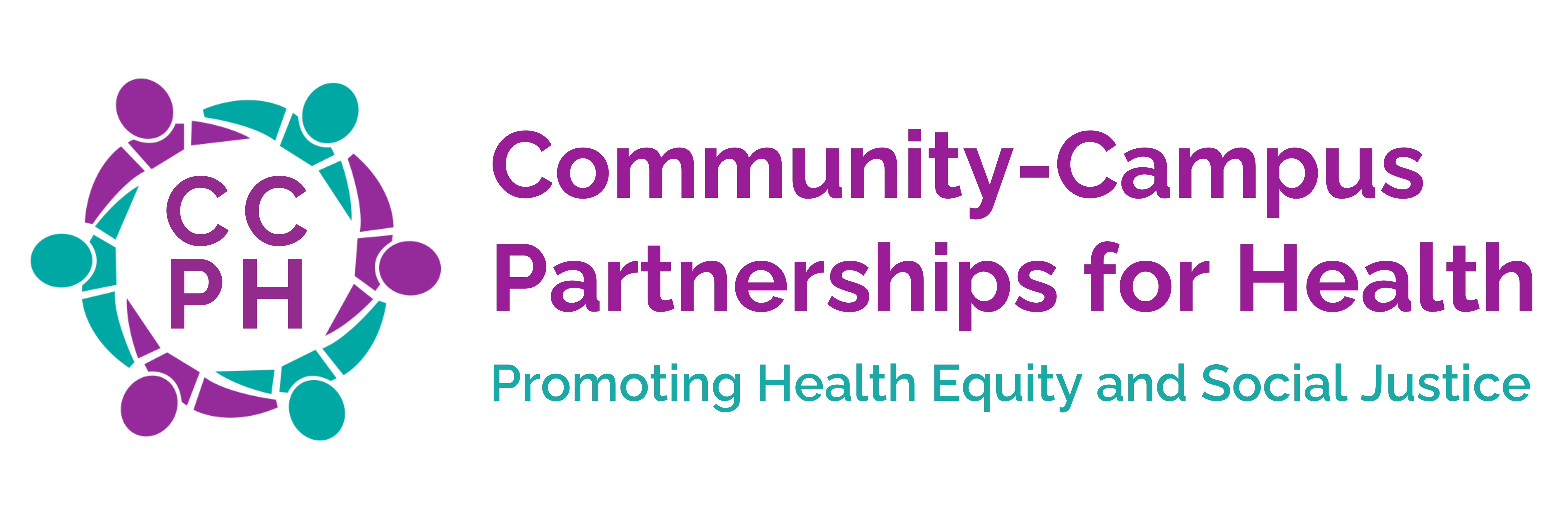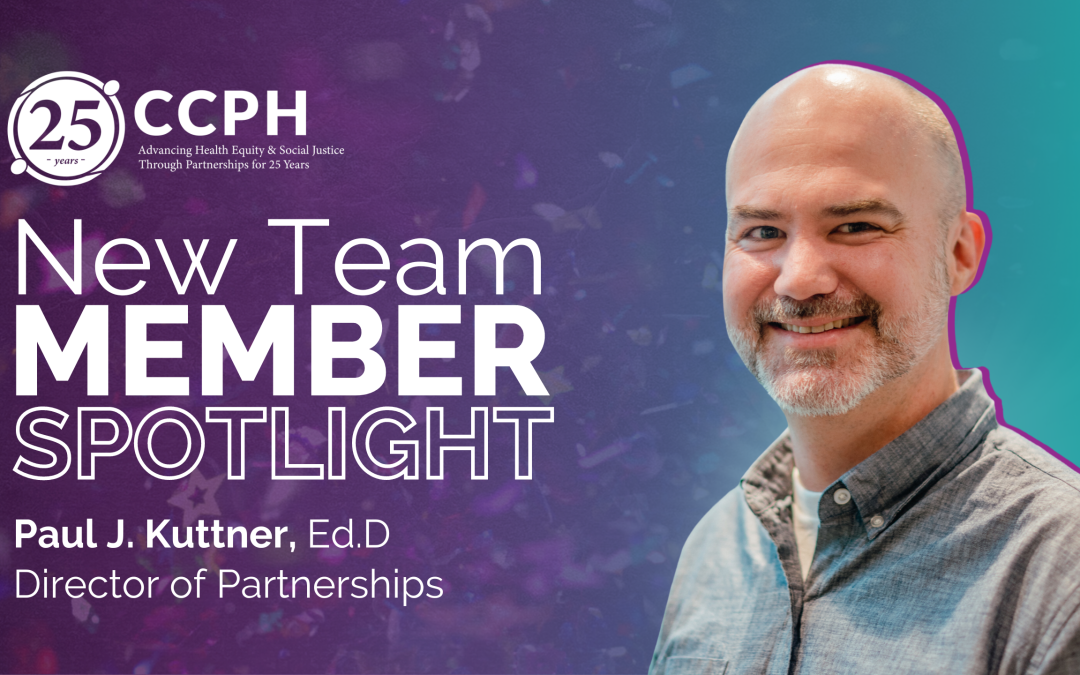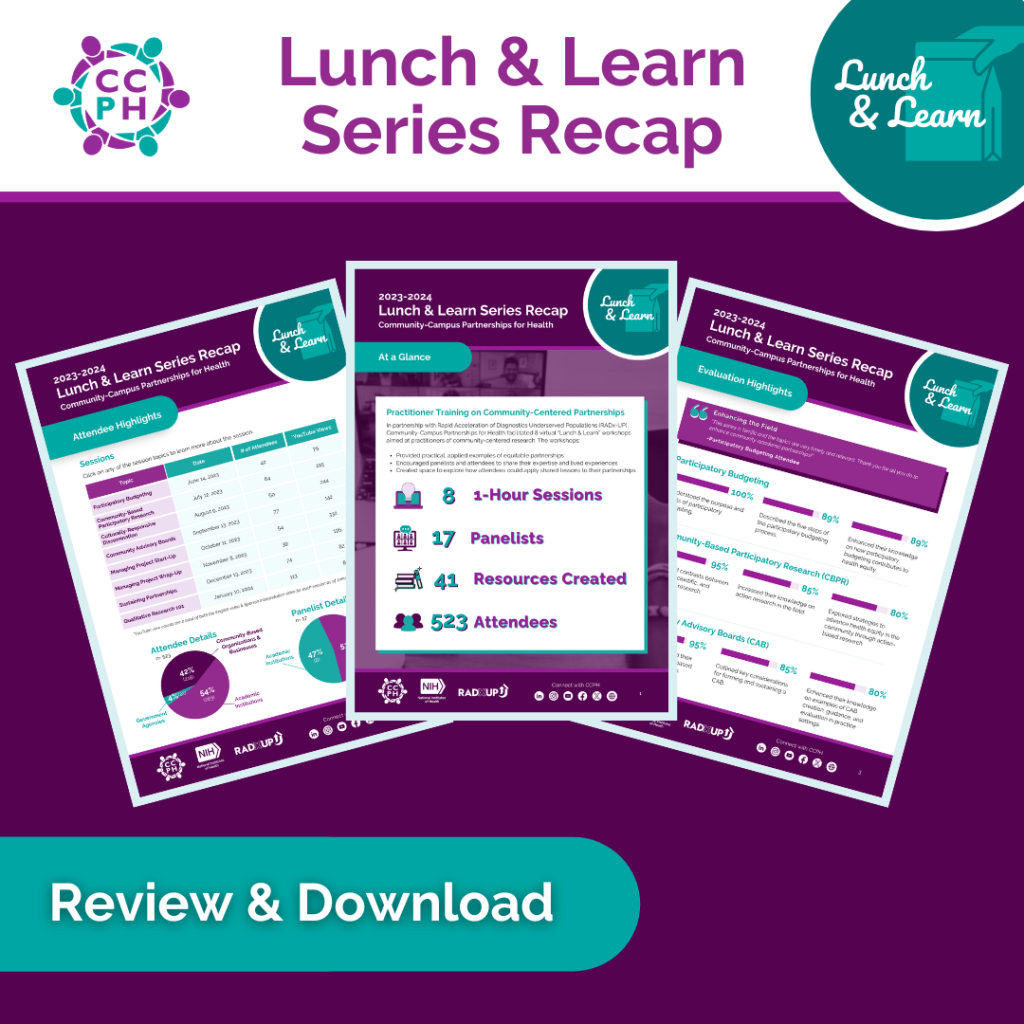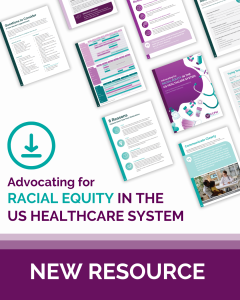CCPH is proud and excited to welcome Dr. Paul J. Kuttner to the CCPH team as our first Director of Partnerships.
Paul comes to CCPH following nine years at the University of Utah, where he served as Associate Director of University Neighborhood Partners (UNP) as well as an instructor at the College of Education. At UNP, Paul had the honor of partnering with community-based organizations, nonprofits, community leaders, hospitals, schools, agencies, families, and local/state government, as well as administrators, faculty, staff, and students from across the disciplines. He learned much from these teachers about what it takes to build authentic, equitable partnerships and the power of combining community-based and academic knowledges to address the systems that sustain inequity. Originally from the Boston area, Paul has now returned to live there with his spouse and son.
Paul began his career as a community-based arts educator. He earned his master’s and doctorate from the Harvard Graduate School of Education, where he conducted research in collaboration with youth and community organizing groups. His research focuses on the relationships between educational institutions (K-12 and higher education) and communities that have faced marginalization and oppression within school systems. His and his partners’ research products have appeared in academic venues such as the Journal of Higher Education Outreach and Engagement, Metropolitan Universities, Teachers College Record, and Harvard Educational Review, as well as practice-focused outlets such as Phi Delta Kappan and Ed Week, alongside community-facing products such as videos, comic books, and curricula. Paul was recently named the 2023 Coalition of Urban and Metropolitan Universities (CUMU) Collaboratory Research Fellow for his work on evaluating the impact of community-campus partnerships.
How did you hear about CCPH?
I’ve actually crossed paths with CCPH several times over the years. I first found out about the organization during graduate school. I have a background in the arts, and I was exploring ways that the arts can be used to conduct and present research through comics, poetry, plays, graphic design, etc. That led me to the CES4Health online journal, which was one of the only places where these kinds of alternative products could be published and peer-reviewed. I connected with CCPH again when I started with University Neighborhood Partners in Salt Lake City. For years, UNP staff had attended CCPH conferences, and our outgoing director, Rosey Hunter, was president of the CCPH board. So, while I haven’t been directly involved, I have been aware of CCPH as an organization doing great work.
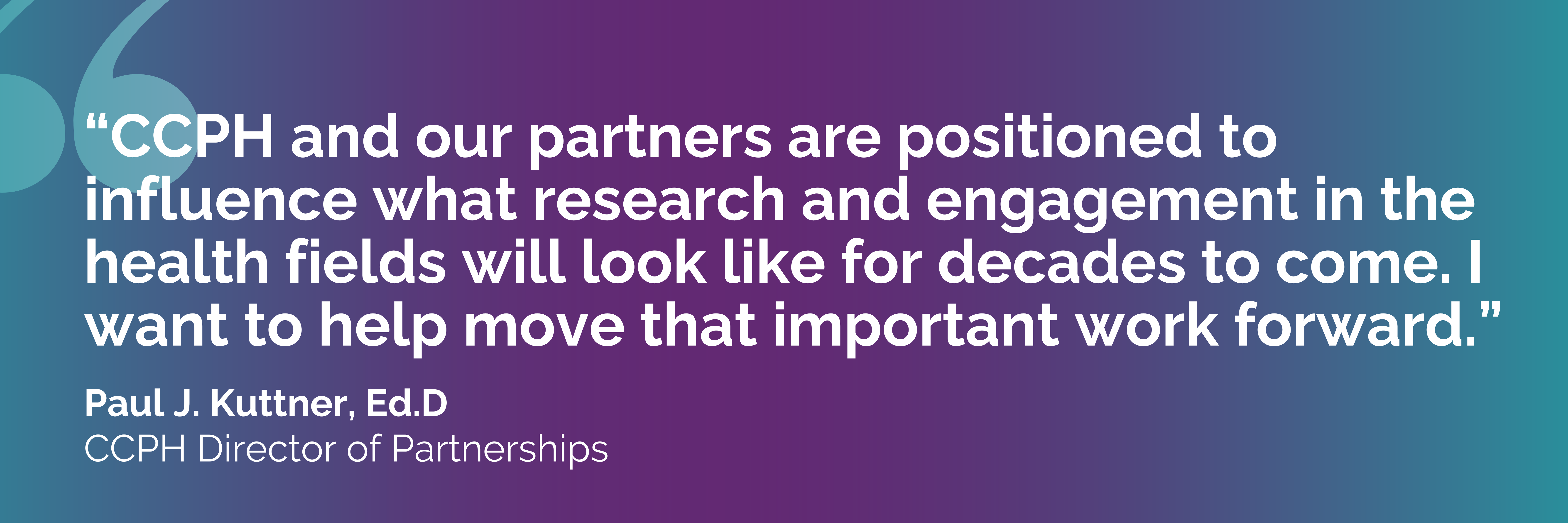
Why did you decide to join CCPH?
I have a lot of respect for the work CCPH does and how it’s shaped the field of community-campus partnerships. For the past eight years, I’ve been doing very local, neighborhood-level work with University Neighborhood Partners. This is an opportunity to work at a different scale to connect with a whole range of new communities and institutions. I’m sure that I will learn a ton. I also think that CCPH is at a really unique point in its evolution right now. It’s grown very rapidly over the past few years and found itself in spaces it never worked in before. CCPH and our partners are positioned to influence what research and engagement in the health fields will look like for decades to come. I want to help move that important work forward.
What drew you to the work of community-engaged research and partnerships?
I really thrive in in-between spaces. I’ve been in the world of grassroots organizing and community work. I’ve navigated the halls of academia. I am most energized when the two intersect. They both have a lot to offer when it comes to improving health and well-being. And they are not as different as we sometimes make out. We are all knowledge producers. We all ask questions about the world and seek answers. We might use different techniques or draw on different sources. But that only makes the search more thorough and the answers more meaningful. And we are all members of communities; we connect with one another and seek belonging. There is a kind of magic that can happen within community-based and participatory research projects when we recognize this.
We invite you to join us in welcoming Dr. Kuttner to CCPH by leaving a comment below.
